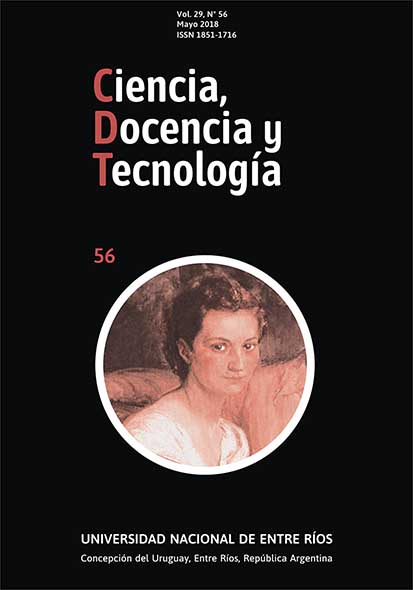Resumo
Este artigo apresenta algumas reflexões sobre a articulação entre o conhecimento jurídico, o científico-experto e o conhecimento baseado na experiência. Categorias da teoria crítica do direito e dos estudos sociais da ciência são combinadas para analisar duas dimensões criadoras de Direito: os processos legislativos e as decisões jurisprudenciais. Em relação ao primeiro, esta articulação é analisada a partir do debate parlamentar no contexto de discussão da Lei 26.014/2005 (que aprovou o Acordo de Cooperação nos Usos Pacíficos da Energia Nuclear Argentina-Austrália). Quanto à segunda, são analisadas decisões judicias em relação a radiações não ionizantes provindas da instalação de antenas de telefonia celular e de estações transformadoras de energia elétrica. Este caminho permite apontar a necessidade de instâncias institucionais que canalizem uma interação mais adequada entre o conhecimento jurídico e outras áreas de geração de conhecimento sobre questões controversas.
Referências
ANZOÁTEGUI, V.T. (1977). Las ideas jurídicas en la Argentina (siglos XIX-XX). Buenos Aires: Abeledo Perrot.
BECK, U. (2008). La sociedad del riesgo mundial : en busca de la seguridad perdida. Barcelona: Grupo Planeta (GBS).
BECK, U. (2002). La sociedad del riesgo global. Barcelona: Siglo XXI de España Editores, S.A.
BECK, U. (1998). La sociedad del riesgo. Hacia una nueva modernidad. Barcelona: Paidós.
BERROS, M.V. (2008). La estandarización como tecnología precautoria globalizada. El caso de las radiaciones no ionizantes, en: Prismas. Direito Políticas Públicas E Mundializaçao, Colección Universitaria UNICEUB. 2:151–186.
BIJKER, W.E. (2005). ¿Cómo y porqué es importante la tecnología?, en: Redes 11:19–59.
BIJKER, W.E., BAL, R., HENDRICKS, R. (2009). The Paradox of Scientific Authority: The Role of Scientific Advice in Democracies. Cambridge: MIT Press.
BRITO, A.G. (2006). Historia de la codificación civil en Iberoamérica. Navarra: Garrigues Cátedra, Universidad de Navarra.
BROWN, P. (1992). Epidemiology and Toxic Waste Contamination: Lay and Professional Ways of Knowing, en: Journal of Health Soc. Behavioral, 33: 267–281.
CAFFERATA, N. (2004). El principio de prevención en el derecho ambiental, en: Rev. de Derecho Ambiental Lexis Nexis Buenos Aires, 0: 9-29.
CAFFERATA, N., GOLDEMBERG, I. (2002). El principio de precaución, en: Jurisprudencia Argentina, 2002–IV.
CALLON, M., LASCOUMES, P., BARTHE, Y. (2001). Agir dans un monde incertain. Essai sur la démocratie technique. París: Editions du Seuil.
CÁRCOVA, C. (2009). Las Teorías jurídicas post positivistas. Buenos Aires: AbeledoPerrot.
COLLINS, H., EVANS, R. (2002). The Third Wave of Science Studies: Studies of Expertise and Experience, en: Social Studies of Science, 32(2):235–296.
EWALD, F. (2001). Le principe de précaution. París: Presses Universitaires de France.
EWALD, F. (1997). Le retour du malin génie. Esquisse d’une philosophie de la précaution. En: GODARD, O. (Ed.), Le principe de précaution dans la conduite des affaires humaines. París: Editorial de la Maison des Sciences de l’homme.
GUIBOURG, R.A. (2003). Teoría general del derecho. Buenos Aires: La Ley.
JASANOFF, S. (2011). Momentos constitucionales en el gobierno de la ciencia y la tecnología. (pp. 18–32). En: PÉREZ BUSTOS, T., LOZANO BORDA, M. (Eds.), Ciencia, Tecnología Y Democracia: Reflexiones En Torno a La Apropiación Social Del Conocimiento. Bogotá: Universidad EAFIT.
JASANOFF, S. (2005). Designs on Nature: Science and Democracy in Europe and the United States. New Jersey: Princeton University Press.
JASANOFF, S. (2004). States of Knowledge: The Co-Production of Science and the Social Order. New York: Taylor & Francis.
JASANOFF, S. (2003). Breaking the Waves in Science Studies: Comment on H.M. Collins and Robert Evans, “The Third Wave of Science Studies.”, en: Social Studies of Science, 33:389–400.
JASANOFF, S. (1997). Science at the Bar: Law, Science, and Technology in America. Cambridge: Harvard University Press.
LATOUR, B. (2004). Politiques de la nature ¿Comment faire entrer les sciences en démocratie? Paris: La Decouverte.
MARÍ, E.E. (2006). La interpretación de la ley. Análisis histórico de la escuela exegética y su nexo con el proceso codificatorio de la modernidad (pp. 163–208). En: CÁRCOVA, C.M. (Ed.), Materiales Para Una Teoría Crítica Del Derecho. Buenos Aires: Lexis Nexis.
OST, F. (1995). A natureza a margem da lei: a ecologia à prova do direito. Lisboa: Instituto Piaget.
PIETRO NAVARRO, E. (2003). Sobre los límites y posibilidades de la respuesta jurídica al riesgo (pp. 27–46). En: DE AGRA, E., DOMINGUEZ, C., GARCÍA AMADO. J.L. La Seguridad En La Sociedad Del Riesgo. Un Debate Abierto. Atelier.
SANTOS, B. de S. (2010). Descolonizar Occidente. Más allá del pensamiento abismal. Buenos Aires: CLACSO- Prometeo.
SANTOS, B. de S. (2003). Para un nuevo sentido común: la ciencia, el derecho y la política en la transición paradigmática. Bilbao: Desclée De Brouwer.
SANTOS, B. de S. (2002). A globalização e as ciencias sociais. São Paulo: Cortéz.
SUAREZ LLANOS, M.L. (2006). El sueño de la codificación y el despertar del derecho, en: DOXA Cuadernos de Filosofía del Derecho, 29:219–248.
THOMAS, H., VERSINO, M., LALOUF, A. (2008). La producción de tecnología nuclear en Argentina: el caso de la empresa INVAP, en: Desarrollo Económico, 47:543–575.
WYNNE, B. (2003). Seasick on the Third Wave? Subverting the Hegemony of Propositionalism: Response to Collins & Evans (2002), en: Social Studies of Science, 33:401–417.
WYNNE, B. (1996). Misunderstanding science? The public reconstruction of science and technology (pp. 19-46). En: WYNNE, B., IRWIN, A. (Eds.), Misundertood Misunderstandings: Social Identities and Public Uptake of Science. Cambridge: Cambridge University Press.

Este trabalho encontra-se publicado com a Licença Internacional Creative Commons Atribuição-NãoComercial-CompartilhaIgual 4.0.
Direitos de Autor (c) 2018 Maria Eugenia Marichal, Maria Valeria Berros

